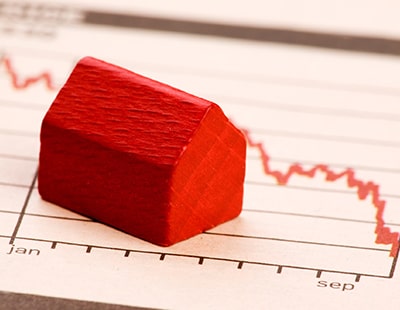
The latest index shows house prices at the end of December were 6.0 per cent higher than in the same month a year earlier.
But the month-on-month price increase of just 0.2 per cent was significantly down from the 1.0 rise seen in November, and echoes what agents have seen on the ground according to former RICS residential faculty head Jeremy Leaf.
“The pace of house price rises started to slow in December, which is exactly what we found in our offices, as home movers were deterred by further lockdown restrictions and seasonal distractions” he says.
“However, we recorded very few abortive sales, other than when chains had broken down or price renegotiations in response to reduced activity. Therefore, looking forward we expect the pattern to be repeated and the overwhelming majority of transactions to proceed to completion, followed by more balance between supply and demand as rollout of the vaccinations hopefully accelerates.”
Knight Frank’s Tom Bill – head of the agency’s residential research team – says this supply-demand equilibrium may continue for some months thanks to the latest national lockdown having an effect.
“Although we expect prices to be largely flat over the course of 2021, there may be a dip in the second quarter. Not only is this due to the end of the stamp duty holiday, but the fact a third national lockdown means some sellers may be inclined to hold off until spring. Any supply glut would put downwards pressure on prices even if normality had begun to return through the vaccine rollout” according to Bill.
Halifax managing director Russell Galley says: “2020 was a tale of two distinct halves for the housing market. Following a strong start, the first half was dominated by the restrictions on movement due to Covid-19, and prices were subsequently down 0.5 per cent at mid-year as the market effectively ground to a halt.
“However, when the market reopened, prices soared as a result of pent-up demand, a desire amongst buyers for greater space and the time-limited incentive of the stamp duty holiday.
“In the near-term, and with mortgage approvals still sitting at a 13-year high, there may be enough residual strength in the market to sustain prices up to the deadline for the stamp duty holiday and the scaling back of Help to Buy at the end of March.
“However, with the pace of the UK’s economic recovery expected to be constrained by the renewed national lockdown, and unemployment widely predicted to rise in the coming months, downward pressure on house prices remains likely as we move through 2021.”

